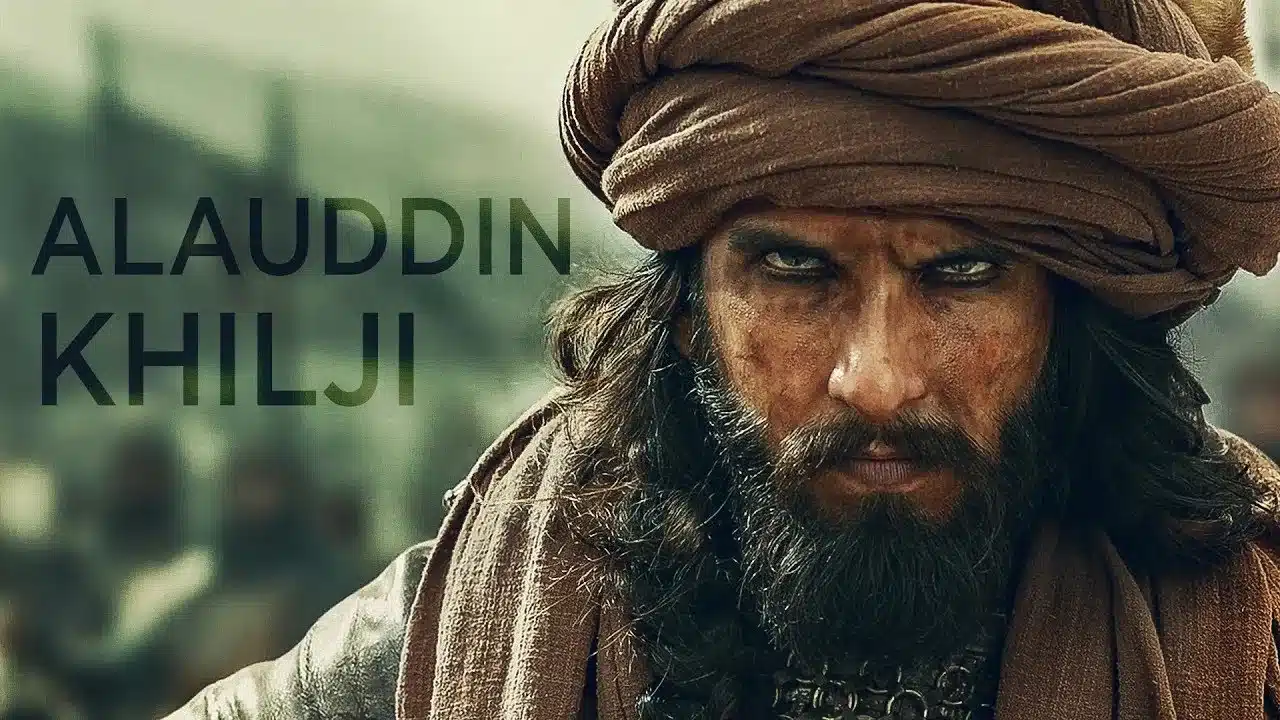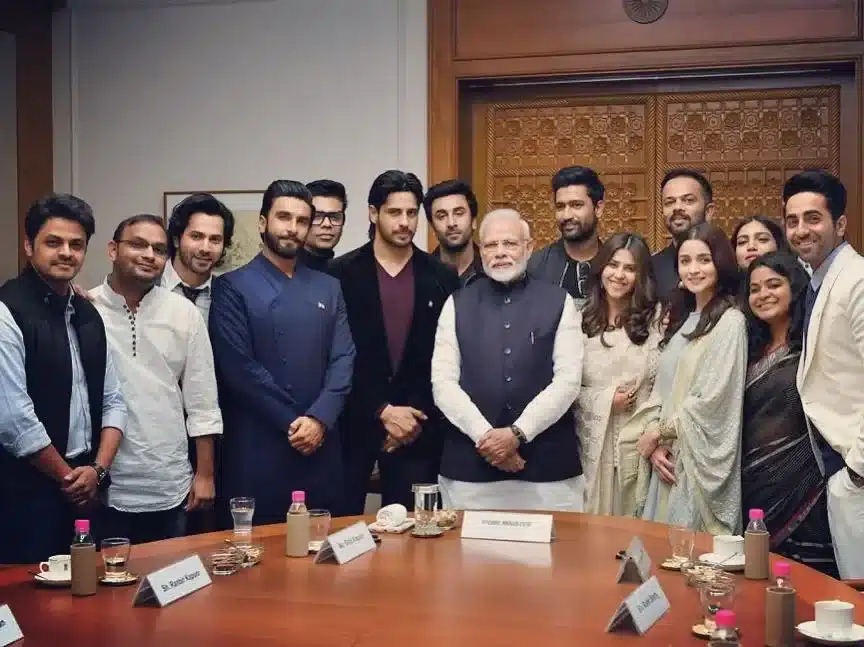Continuing our series on Bollywood’s distortion of Muslim history, we delve deeper into Padmaavat (2018). The film misrepresents real historical figures. With a budget of ₹215 crores (~$26 million), this film wasn’t just a cinematic endeavor. It served as an intentional narrative to undermine Muslim history.
Alauddin Khilji’s Character: A Gross Misrepresentation
The film portrays Alauddin Khilji as a ruthless, lust-driven tyrant. He was one of the most powerful Muslim rulers of the Delhi Sultanate, but this depiction is a far cry from his real historical legacy. The portrayal worsens with the bizarre narrative twist of Khilji being shown as bisexual. This distortion serves no purpose other than to caricature him further. It feeds into Islamophobic stereotypes about Muslim rulers being “barbaric and morally depraved.”

Also See: Bollywood and Islamophobia – Unmasking Distortions Through Cinema in Film “Panipat”
The Sanjay Leela Bhansali and his Anti-Muslim Agenda
Sanjay Leela Bhansali, considered one of Bollywood’s most influential storytellers, seems to have embarked on a streak of anti-Muslim films. Padmaavat was just the beginning.
His recent work Heera Mandi also followed the same pattern of depicting Muslims in negative light. It’s not just about artistic freedom anymore—Bhansali is consciously using his platform to push a problematic agenda.
![Indian filmmaker and producer Sanjay Leela Bhansali attends the special screening of Netflix's "Heeramandi: The Diamond Bazaar" at The Egyptian Theatre in Hollywood, California on April 29, 2024. [AFP]](https://pkafgyouthforum.com/wp-content/uploads/2024/10/GZdKyRHXoAAQGkD.webp)

Ranveer Singh: A Regular in Anti-Muslim Cinema
Ranveer Singh’s portrayal of Khilji is symptomatic of Bollywood’s broader trend. Known for his roles in other controversial, anti-Muslim films, Singh has become a key player in reinforcing Islamophobic narratives in mainstream cinema. His performance, while lauded for its intensity, feeds into a broader culture of vilifying Muslims through cinematic misrepresentation.


The Storyline: Historical Distortion at its Peak
The storyline centers around Rani Padmavati (played by Deepika Padukone), a Rajput queen who, according to Padmaavat, valiantly defended her honor against Khilji’s advances. However, historians widely agree that Padmavati’s existence is based on myth rather than fact, drawn from a 16th-century poem by Malik Muhammad Jayasi.
The film exploits this legend to portray Khilji as an invader obsessed with Padmavati, reducing him to nothing more than a lustful tyrant. As Rana Ayyub points out, the film leans heavily into dangerous bigotry, where Khilji is shown as “uncivilized” in every possible way—savage, gluttonous, and devoid of honor.
![Collage from an illustrated manuscript of Padmavat from c. 1750 CE and a painting of Princess Padmavati ca. 1765 [Wikimedia Commons]](https://southasiatimes.org/wp-content/uploads/2024/10/GZdLt9eW0AA0efs.webp)
Supreme Court Ruling and Global Reactions
Despite widespread protests across India, with right-wing groups like the Karni Sena vandalizing theaters and threatening violence, the Supreme Court refused to ban the film, citing freedom of expression. However, international reactions were different.
Padmaavat was banned in Malaysia for its negative portrayal of a Muslim ruler, with authorities deeming it unsuitable for local audiences. Pakistan and other Muslim-majority countries also refused to screen the film due to its blatant Islamophobic narrative.
![Supreme Court rejects bid to ban Bollywood's 'Padmaavat' [Aljazeera]](https://pkafgyouthforum.com/wp-content/uploads/2024/10/GZdMFyMX0AAPiv3.webp)
![Malaysia bans Bollywood film 'Padmaavat' over negative portrayal of Muslim ruler [MyNews]](https://pkafgyouthforum.com/wp-content/uploads/2024/10/GZdMKM8XEAAgaj0.webp)
The Political Climate and Bollywood’s Role
Released in 2018, during a period of heightened Hindu nationalism, Padmaavat fed into a larger political agenda. The glorification of Rajput honor and the demonization of a Muslim ruler mirrored the social and political dynamics in India, where films like this shape public perceptions and deepen communal divides.
Stay tuned as we continue our series exposing Bollywood’s role in rewriting history and spreading Islamophobia.

PAYF Insights are social media threads by various authors, reproduced here for wider consumption.



